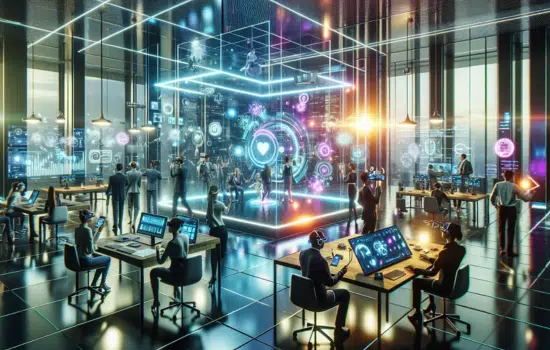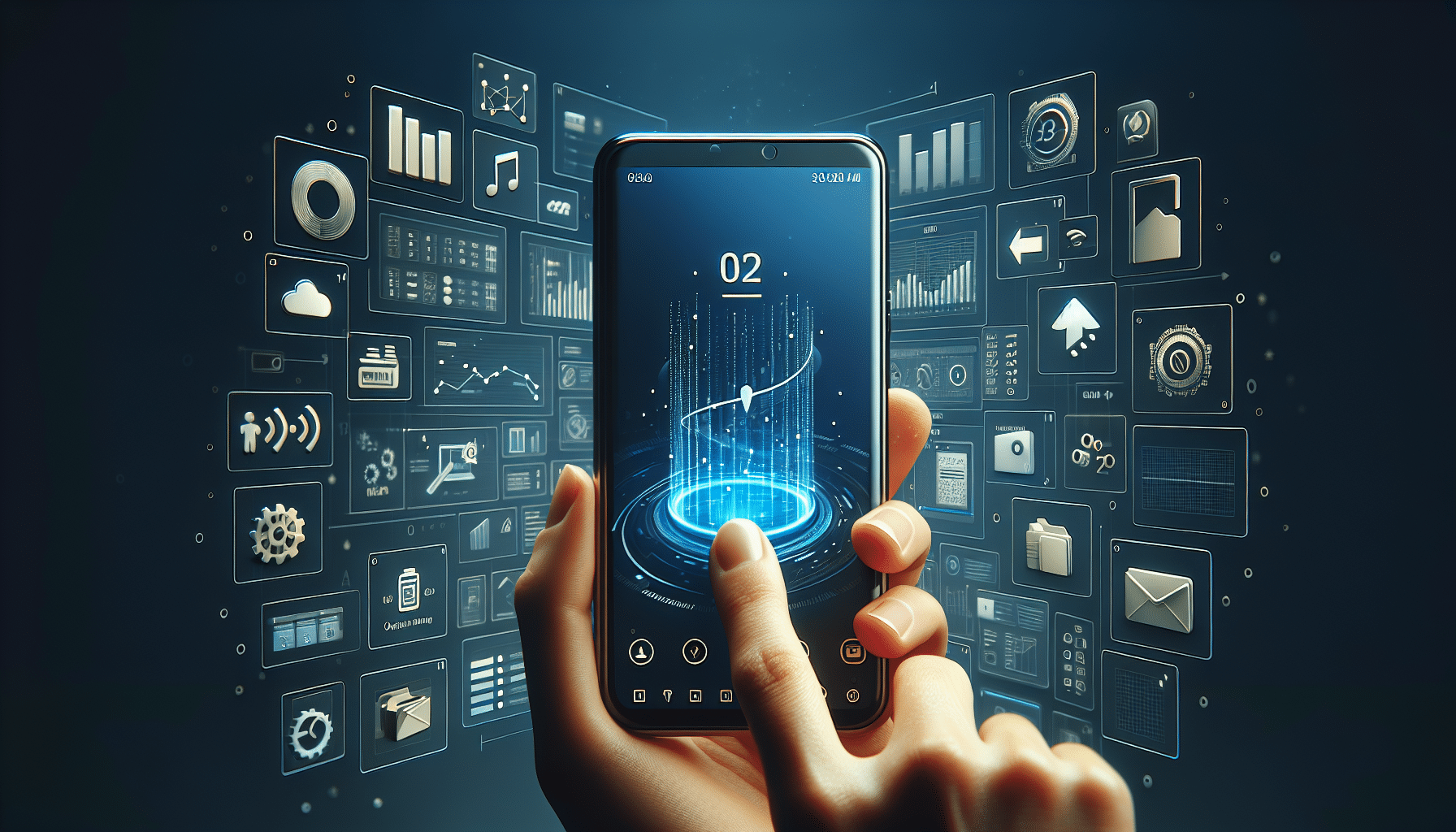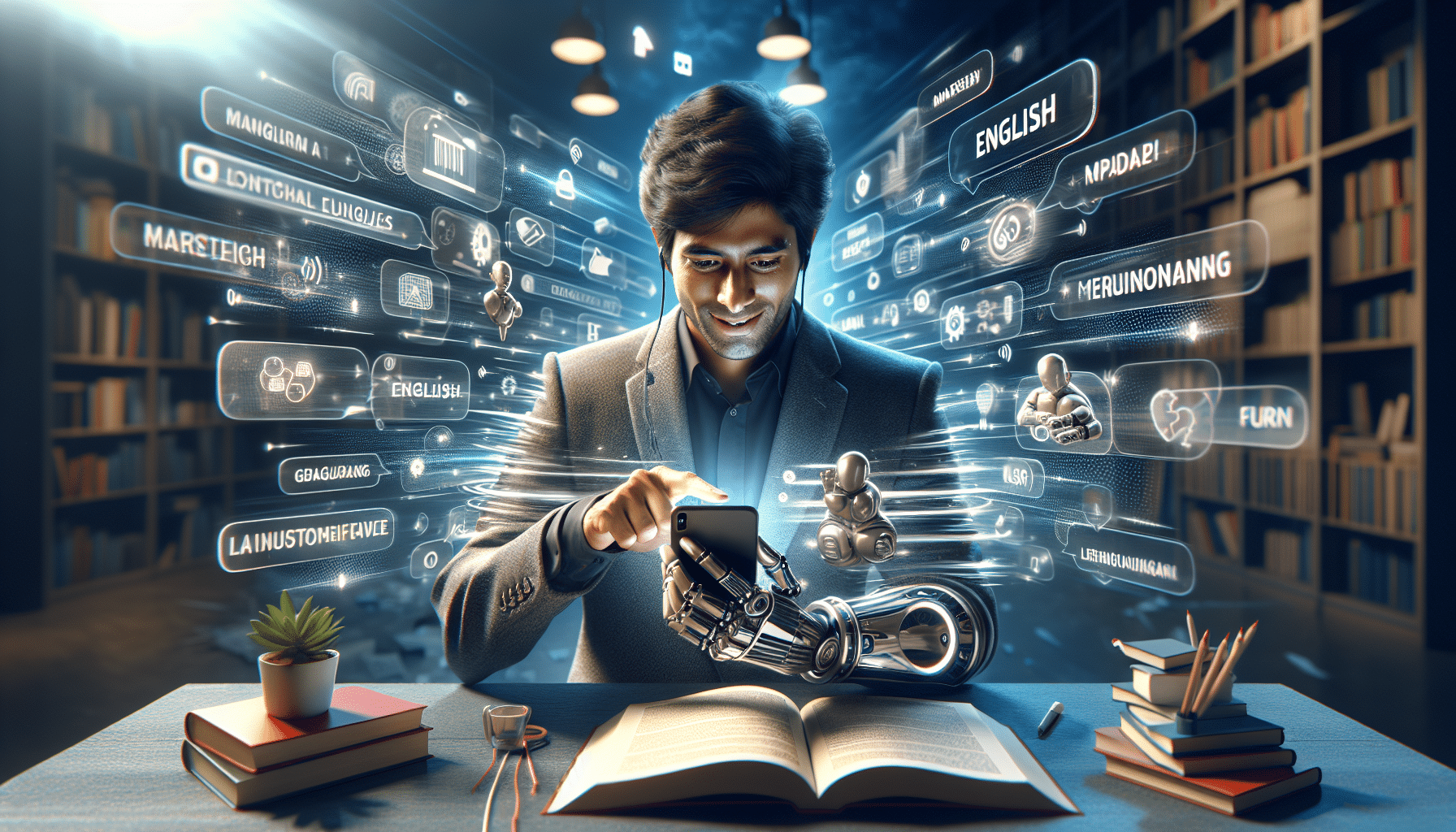Advertisements
In a world where technology is advancing by leaps and bounds, artificial intelligence applications are marking a turning point in multiple sectors.
From healthcare to finance, education to entertainment, these innovations are redefining the way we interact with the digital environment and our daily lives.
Advertisements
This article explores how these AI tools are not only facilitating complex tasks but also opening up new business and creative opportunities.
The revolution these applications bring is unprecedented. Companies and entrepreneurs are harnessing their potential to optimize processes, personalize experiences, and make more informed decisions.
In healthcare, for example, AI algorithms are helping with more accurate and faster diagnoses, while in the financial sector, fraud detection has become more effective thanks to these technologies.
Advertisements
In education, personalized learning has become a tangible reality, adapting content to the specific needs of each student.
However, innovation doesn't stop there. As artificial intelligence continues to evolve, new applications are on the horizon that could further transform our lives.
See also:
- Maximize your cell phone's performance
- Master judo with the mobile app
- Recover your memories with ease
- Daily Destination: Know your future!
- Master the guitar in record time!
From increasingly sophisticated virtual assistants to more robust security systems, the future is exciting and full of possibilities.
This text will guide you through the most innovative applications emerging on the market, offering a clear view of how they are shaping the present and future of humanity. Prepare to discover a world of infinite possibilities where the only constant is change.
Artificial Intelligence in Mobile Applications: Constant Innovation
First, the advancement of artificial intelligence (AI) has enabled the creation of mobile applications that transform the way we interact with technology.
For example, apps like Replika have revolutionized the field of personal communication. Replika is an AI-based chatbot that allows users to have meaningful and personalized conversations.
This app uses advanced natural language processing algorithms to learn about users' preferences and personalities, offering a unique conversational experience.
Additionally, AI is also being used to improve personal productivity. For example, apps like Notion have integrated AI features to make it easier to organize tasks and projects.
This app offers features such as automating repetitive tasks and recommending relevant content, allowing users to optimize their time and improve their efficiency.
As technology advances, AI continues to expand its applications in diverse fields, providing innovative and personalized solutions to meet the evolving needs of users.
AI Applications in Health: A Revolutionary Approach
In the healthcare field, artificial intelligence applications are changing the way diseases are diagnosed and treated.
For example, apps like Ada Health offer users the ability to perform AI-powered self-health assessments.
Using advanced algorithms, Ada Health analyzes user-reported symptoms and provides possible diagnoses and recommendations for follow-up care.
Similarly, AI is playing a crucial role in health monitoring. Apps like MyFitnessPal have integrated artificial intelligence algorithms to help users track their physical activity and nutrition.
These apps use personal data to offer personalized advice on how to improve overall health and well-being.
In short, implementing artificial intelligence in healthcare applications not only improves access to healthcare but also empowers users to make informed decisions about their health.
Transforming Education with AI Applications
In the education sector, artificial intelligence applications are providing new, personalized learning opportunities for students of all ages.
One prominent app in this space is Duolingo, which uses AI to personalize language lessons based on a user's needs and abilities.
This app adjusts the difficulty level of learning activities based on the user's performance, facilitating faster and more effective progress.
On the other hand, artificial intelligence is also improving the learning experience in other areas of knowledge. Applications like Photomath use AI algorithms to help students solve math problems.
By scanning equations with your phone's camera, Photomath offers step-by-step solutions and detailed explanations, allowing students to better understand math concepts.
Ultimately, the integration of artificial intelligence into education is enabling more personalized and effective teaching, adapting to the individual needs of each student.
AI in Entertainment: Immersive Experiences
In the entertainment field, AI-powered applications are offering more immersive and personalized experiences.
A notable example is Netflix, which uses AI to analyze users' viewing preferences and recommend content that suits their tastes.
Thanks to sophisticated algorithms, Netflix can accurately predict which shows or movies each user might be interested in, thus improving the viewing experience.
Music apps like Spotify also use artificial intelligence to create personalized playlists.
AI analyzes users' listening history and musical preferences to offer recommendations of songs and artists they're likely to enjoy.
This personalization has transformed the way people discover and consume music, making it more accessible and tailored to their individual tastes.
As a result, AI applications in entertainment are redefining how users interact with digital content, providing richer and more personalized experiences.
Impact of AI on E-Commerce
Finally, artificial intelligence is playing a crucial role in transforming e-commerce, improving the online shopping experience for consumers.
Applications like Amazon have implemented AI algorithms to offer personalized product recommendations.
By analyzing users' purchase history and preferences, Amazon can suggest products that are likely to be of interest, increasing the likelihood of purchase.
Additionally, AI is also optimizing logistics and inventory management in e-commerce. Applications like Shopify use artificial intelligence to predict product demand and manage inventory more efficiently.
This not only improves operational efficiency but also ensures that customers can find and receive the products they want in a timely manner.
In short, artificial intelligence is transforming e-commerce by personalizing the customer experience and optimizing business operations, benefiting both consumers and retailers.
List of Featured AI Applications
- Replica: An AI-powered chatbot that delivers personalized and meaningful conversations.
- Notion: Productivity tool that uses AI to automate tasks and optimize users' time.
- Ada Health: Health app that provides AI-based self-assessments for preliminary diagnoses.
- MyFitnessPal: Helps users track their fitness and nutrition using AI.
- Duolingo: Language learning platform that customizes lessons based on the user's skills.
- Photomath: Uses AI to solve and explain math problems.
- Netflix: Provides AI-based content recommendations based on the user's viewing preferences.
- Spotify: Create personalized playlists using artificial intelligence.
- Amazon: Personalize product recommendations using AI algorithms.
- Shopify: Optimize inventory and logistics management with AI to improve the online shopping experience.

Conclusion
In conclusion, artificial intelligence applications are transforming various sectors in profound and significant ways.
From personal communication to education, healthcare, entertainment, and e-commerce, AI is redefining the interaction between users and technology.
For example, apps like Replika and Notion are offering personalized experiences and increasing personal productivity, while in the health space, Ada Health and MyFitnessPal empower users to manage their well-being in an informed manner.
On the other hand, in the education sector, tools like Duolingo and Photomath are revolutionizing the way we learn, adapting to students' individual needs.
In the entertainment sector, platforms like Netflix and Spotify use AI algorithms to deliver highly personalized content, enriching the user experience.
Additionally, e-commerce has benefited from applications like Amazon and Shopify, which optimize the shopping experience and inventory management.
Thus, the implementation of artificial intelligence in these applications not only makes daily life easier, but also opens up a range of possibilities for continuous innovation.
As technology advances, AI will continue to play a crucial role in developing creative and personalized solutions.
In short, the AI-driven revolution promises a future of limitless innovation, where user experiences are richer, more efficient, and more personalized.




